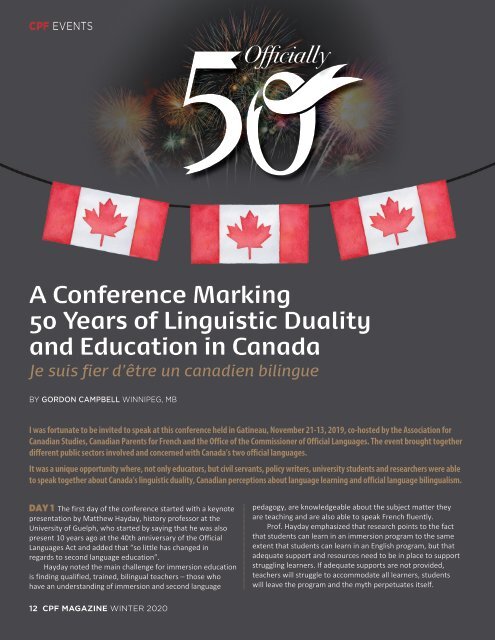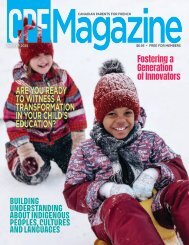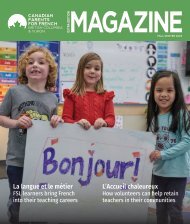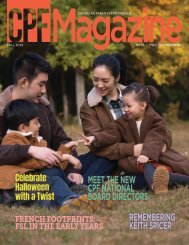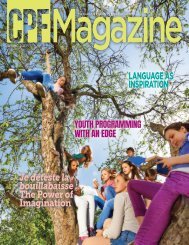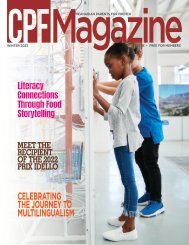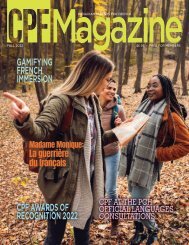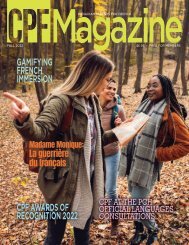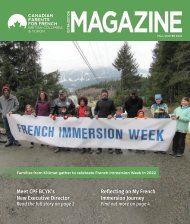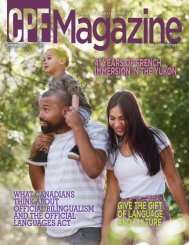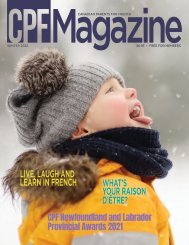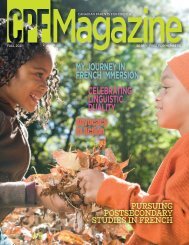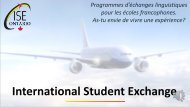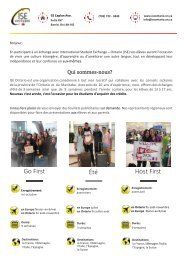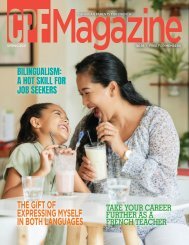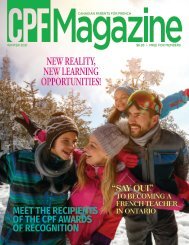CPF Magazine Winter 2020 Issue
A national network of volunteers, parents and stakeholders who value French as an integral part of Canada. CPF Magazine is dedicated to the promotion and creation of French-second-language learning opportunities for young Canadians.
A national network of volunteers, parents and stakeholders who value French as an integral part of Canada. CPF Magazine is dedicated to the promotion and creation of French-second-language learning opportunities for young Canadians.
You also want an ePaper? Increase the reach of your titles
YUMPU automatically turns print PDFs into web optimized ePapers that Google loves.
<strong>CPF</strong> EVENTS<br />
Officially<br />
A Conference Marking<br />
50 Years of Linguistic Duality<br />
and Education in Canada<br />
Je suis fier d’être un canadien bilingue<br />
BY GORDON CAMPBELL WINNIPEG, MB<br />
I was fortunate to be invited to speak at this conference held in Gatineau, November 21-13, 2019, co-hosted by the Association for<br />
Canadian Studies, Canadian Parents for French and the Office of the Commissioner of Official Languages. The event brought together<br />
different public sectors involved and concerned with Canada’s two official languages.<br />
It was a unique opportunity where, not only educators, but civil servants, policy writers, university students and researchers were able<br />
to speak together about Canada’s linguistic duality, Canadian perceptions about language learning and official language bilingualism.<br />
DAY 1 The first day of the conference started with a keynote<br />
presentation by Matthew Hayday, history professor at the<br />
University of Guelph, who started by saying that he was also<br />
present 10 years ago at the 40th anniversary of the Official<br />
Languages Act and added that “so little has changed in<br />
regards to second language education”.<br />
Hayday noted the main challenge for immersion education<br />
is finding qualified, trained, bilingual teachers – those who<br />
have an understanding of immersion and second language<br />
pedagogy, are knowledgeable about the subject matter they<br />
are teaching and are also able to speak French fluently.<br />
Prof. Hayday emphasized that research points to the fact<br />
that students can learn in an immersion program to the same<br />
extent that students can learn in an English program, but that<br />
adequate support and resources need to be in place to support<br />
struggling learners. If adequate supports are not provided,<br />
teachers will struggle to accommodate all learners, students<br />
will leave the program and the myth perpetuates itself.<br />
12 <strong>CPF</strong> MAGAZINE WINTER <strong>2020</strong>


